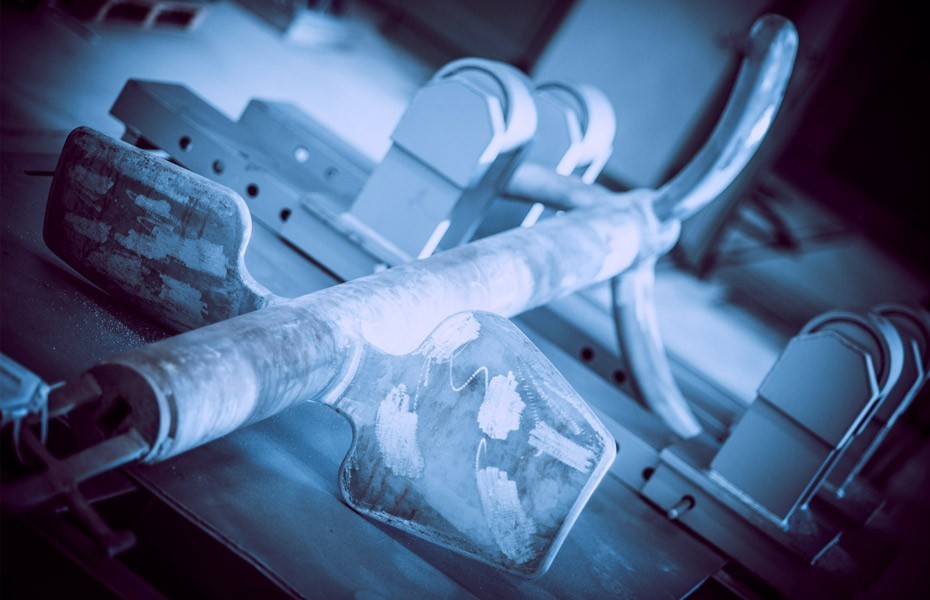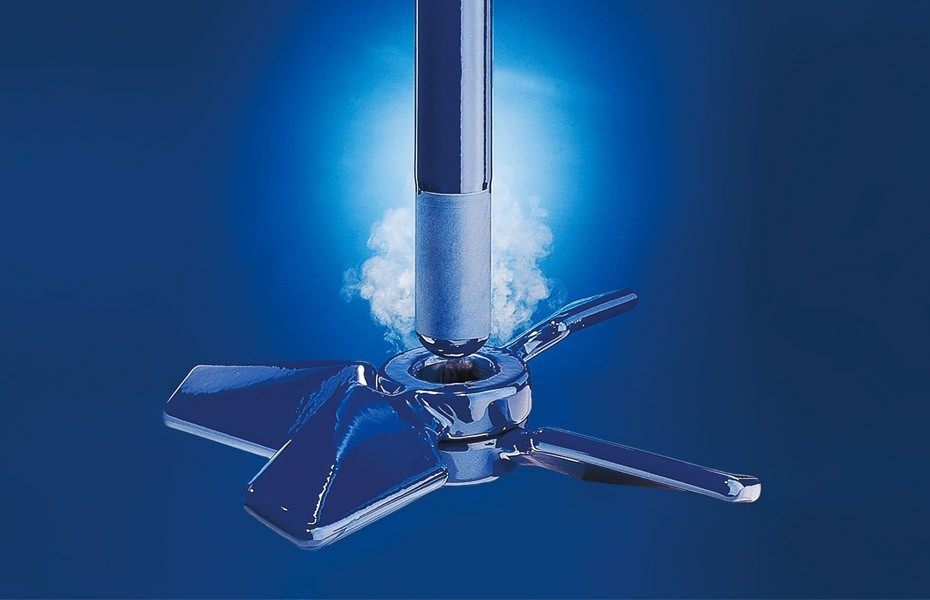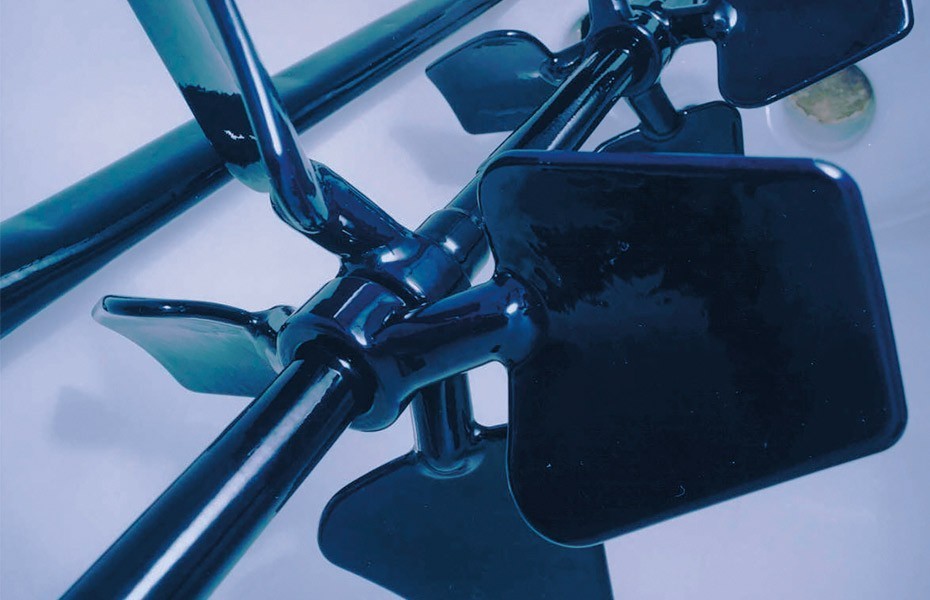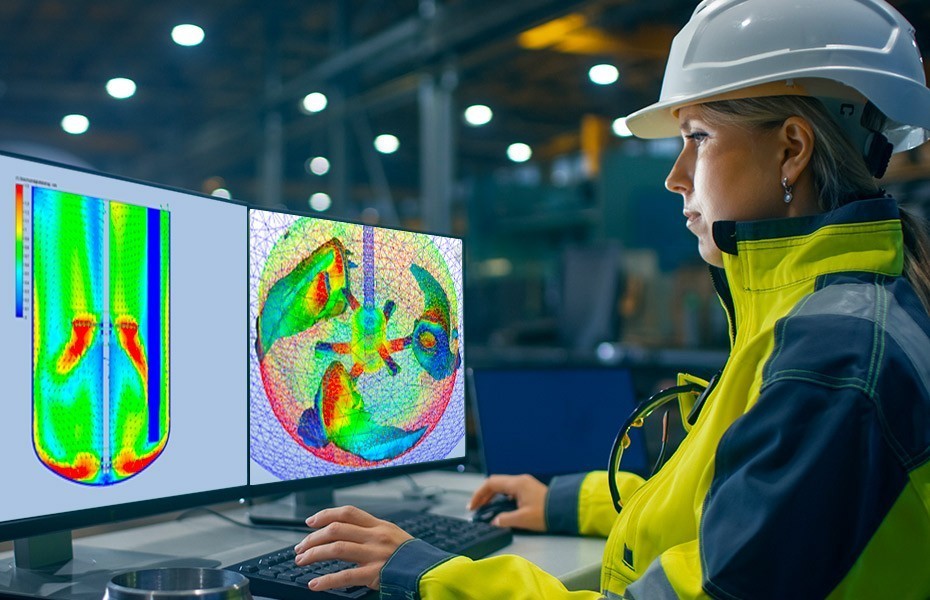Agitation
Pfaudler - Glass-Lined & Alloy Systems
Technologies

History of glass lined agitators
Originally glass lined agitators were mainly designed and fabricated in one-piece construction. Assembling agitators inside the vessels, as it is done for metallic agitators, was costly and technically limited, but was sometimes used in the past if deemed to be helpful for process improvements.
With the invention of the Cryo-Lock connection in the early 1980’s, Pfaudler paved the way of modern agitation systems with a design for removeable glass lined impellers. From that time on, agitator systems were customized to users’ process needs.
One-piece agitators
Impellers to DIN 28157 and anchors are the 2 most frequent one-piece agitators, installed in DIN-AE, DIN-CE or similar types of reactors:
- AE and CE reactors are designed with big openings: body flange in the 2-piece AE type reactors and assembly cover flange in CE type reactors.
- In case of maintenance, expensive downtime contributors such as removing the covers, piping on top and other similar operations, have to be considered.
In modern glass lined agitator systems, one-piece agitators are less and less utilized:
- Continue to be utilized in AE type reactors for dimensional reasons.
- CE reactors are progressively replaced by BE type reactors, using the CryoLock or ElcoLock type 2- piece agitators.
Pfaudler offers two connection systems of the agitator impellers to the shaft:
- The CryoLock system: cryogenic assembly on cylindrical hubs
- The ElcoLock system: mechanical assembly on conical hubs

The CryoLock principle: agitation system up to 7 multiple flight stages
CryoLock is state-of-the-art technology and allowed Pfaudler to be the first manufacturer of glass coated agitators in the world having created a multistage agitator with 7 turbine levels. Features of the CryoLock connection:
- Agitator in 2 or more parts, with 1 shaft and as many turbines as agitation requires
- Cryogenic shrinking glass to glass connection of a fully glassed turbine on a fully glassed shaft.
- Cylindrical connection: Easy spare parts management.
- Liquid and gas tight connection, gasket free.
- No limitation in number of assemblies/ dismantling.

The ElcoLock principle: mechanical glass to glass connection of the agitator
The ElcoLock coupling is a mechanical locking system for glass-lined turbines and impellers (one- or more-piece design) on glass-lined agitator shafts. The connection to the shaft is slightly conical. This technology can be supplied in specific market solutions as an alternative to CryoLock technology.
Features of the ElcoLock connection:
- Agitator in 2 or more parts, with 1 shaft and up to three agitation levels.
- The system is strictly mechanical with glass on glass connection without bolts and gaskets. Every turbine level has its specific conical connection on the shaft.
- No limitation in number of assemblies/ dismantling.

Benefits of the CryoLock and the ElcoLock connection:
- Extremely short replacement time of the agitator impeller and shaft without removing the drive unit and the piping
- All impeller blades can be removed/ replaced via the manhole.
- Possibility to use many geometries of agitator blades, with optimized shapes for the process.
- Short downtime
- Ease of transport and handling
Benefits of the Cryo-Lock or ElcoLock connection for the reactor vessel itself:
As the assembly of the agitator is made through the manhole, the big, gasketed assembly opening is no longer required:
- Increased safety – increased mechanical strength
- Reduced risk of leakage
- Vessels easier to clean, no crusting on main opening gasket.
- Short downtimes for maintenance: Turbines replaced without dismantling of agitator shaft, agitator drive, sealing unit, piping.
Customized multistage glass lined agitator configurations
Besides its mechanical benefits, the CryoLock and ElcoLock technologies enhance the flexibility of glass lined agitator systems
- Adaptation of the agitator to the process requirements
- Variety of turbines available
- Reduced spare parts cost due to agitator split and variety of turbines assignments
- Combination of several turbine shapes on a single shaft: improved agitating performance




